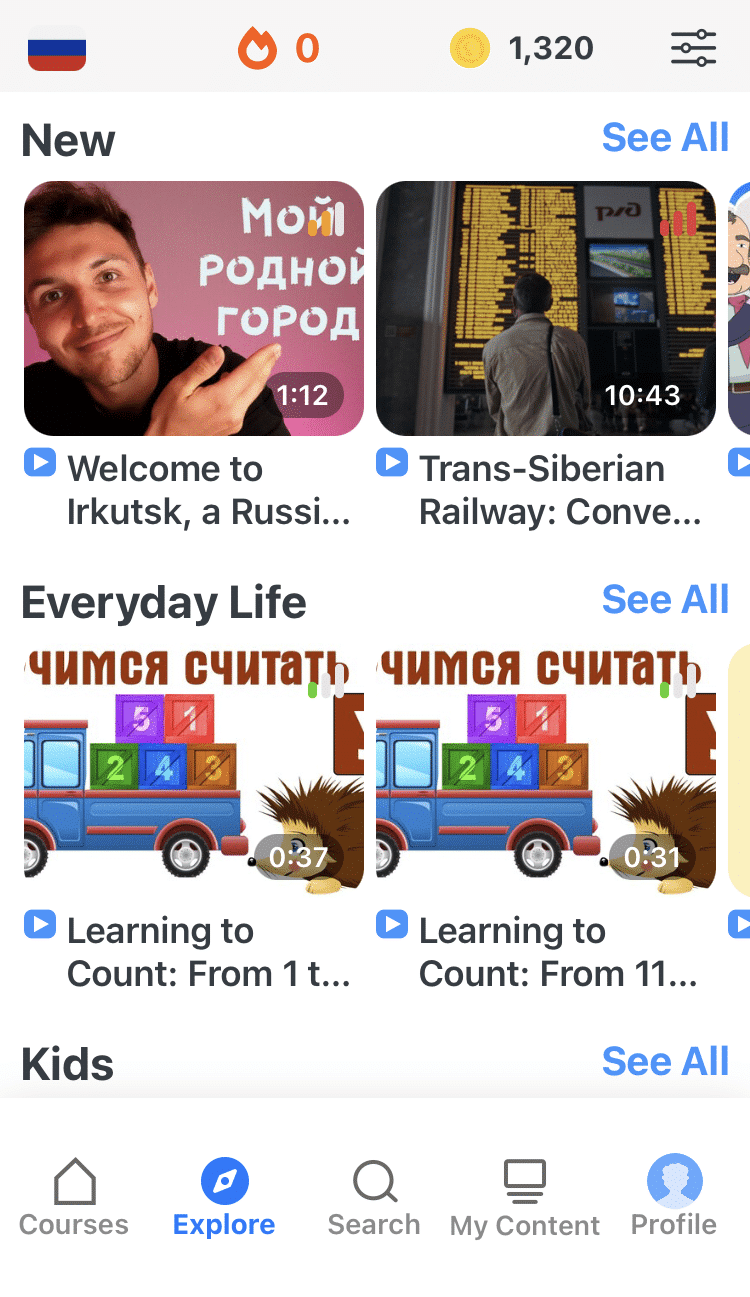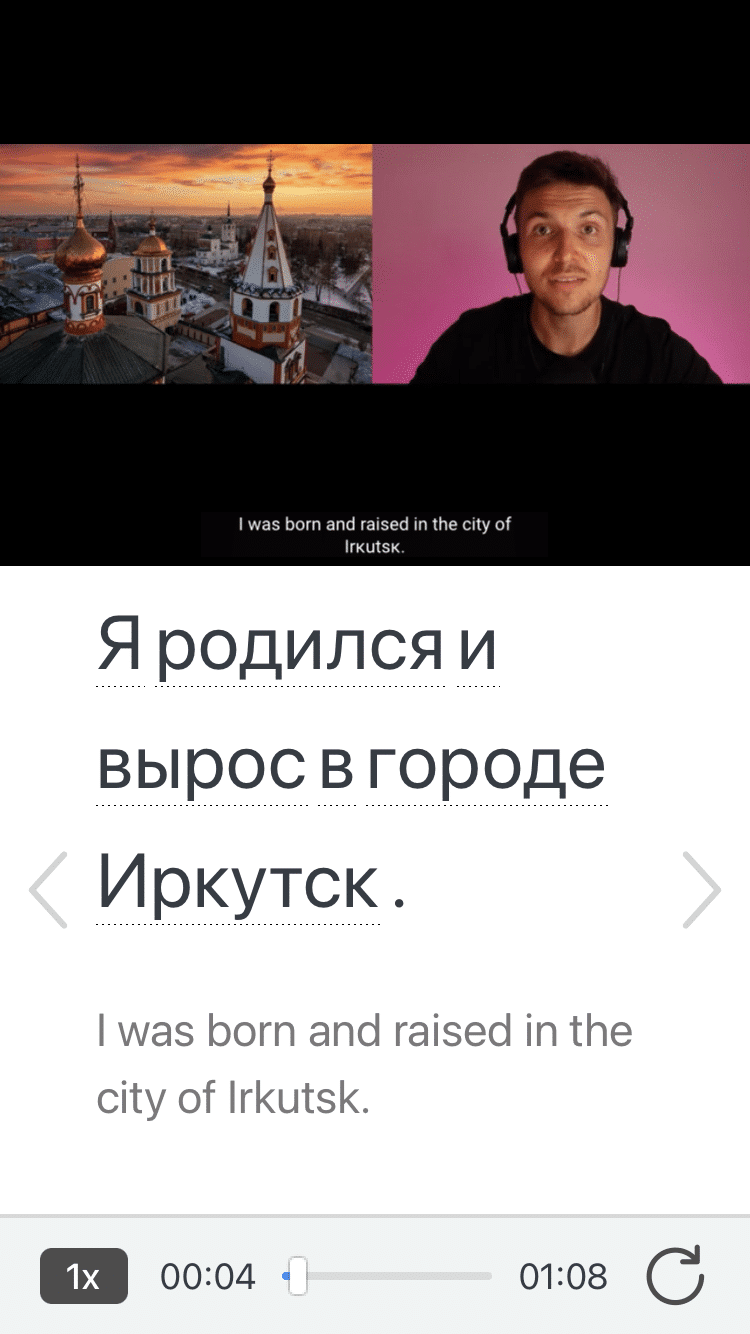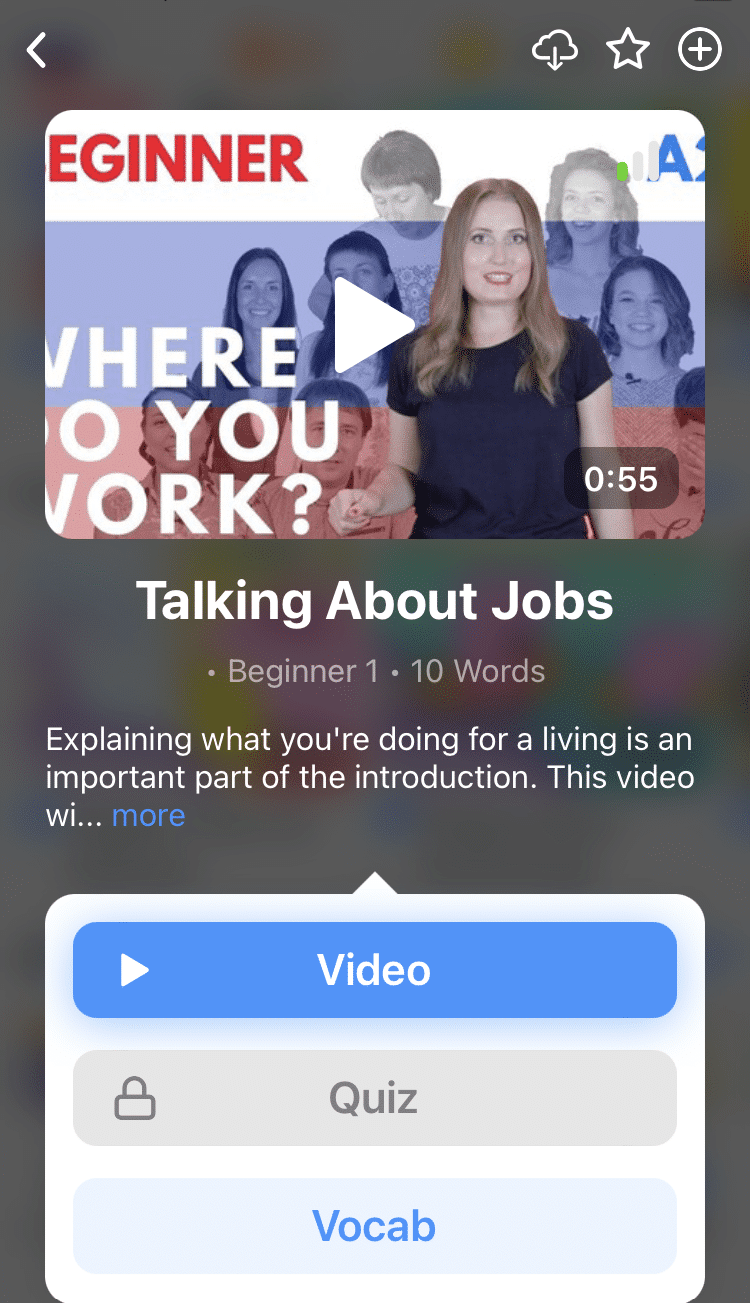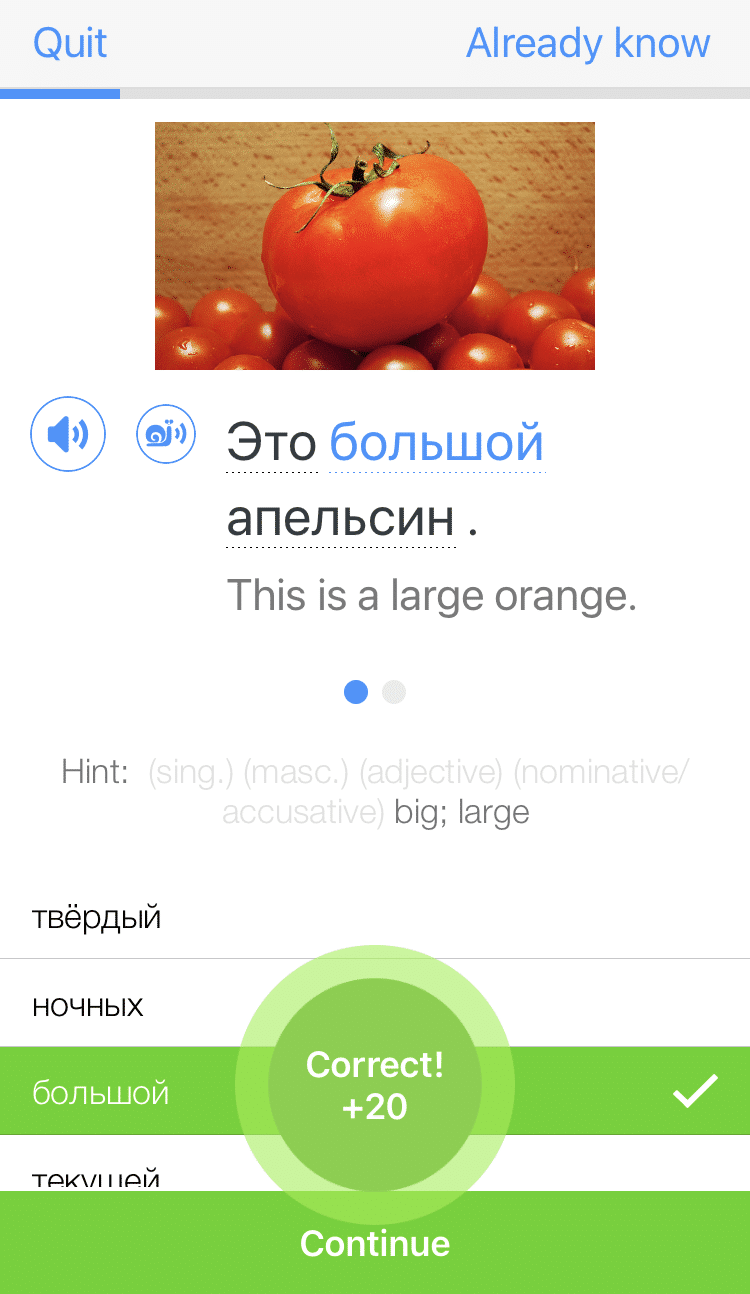
29 Conversational Russian Phrases
The gap between literary Russian and everyday Russian is dramatically bigger than the gap between literary and everyday English.
Read on to learn how you can learn the everyday language you’re going to hear in the Russian-speaking countries with 29 conversational Russian phrases.
Contents
- Phrases to Start a Conversation
- Phrases to Break an Awkward Silence
- Slang Phrases to Keep the Conversation Going
- Phrases to Use With Someone You’re Romantically Interested In
- Resources to Enrich Your Conversational Vocabulary and Phrase List
- And One More Thing...
Download: This blog post is available as a convenient and portable PDF that you can take anywhere. Click here to get a copy. (Download)
Phrases to Start a Conversation
Small talk isn’t normal in Russia. While Americans can ask anyone, “How are you?” as a greeting, that’s weird in Russia. Strangers normally keep to themselves.
Here are 29 everyday phrases that will help you start a conversation with a Russian. We’ve included audio clips for each word to help you pronounce these words like a native.
1. риятно видеть вас здесь – Nice to see you here!
2. Мы встречались с вами ранее? – Have we met before?
3. Как поживаешь? – How are you doing?
4. Привет! Что нового? – Hi! What’s up?
5. Привет! Давно не виделись! – Hi! Haven’t seen you in a while!
6. Ты не будешь возражать, если я спрошу тебя о… ? – Would you mind if I ask you…?
7. Ну, дело в следующем … – Here’s the thing…
8. Без разницы! – Whatever!
Phrases to Break an Awkward Silence
We all hate awkward silences, don’t we? Check these phrases out to ensure you won’t experience that while communicating with your Russian friends.
9. В самом деле? Расскажи подробнее! – Really? Tell me more!
10. Ты, должно быть, шутишь! – You must be kidding!
11. Ну, как бы получше выразиться? – How can I phrase this right?
12. Видишь ли, дело в том, что… – You see, the thing is…
13. что касается… – Regarding the…
14. кстати… – By the way…
15. для справки… – Just for the record…
Slang Phrases to Keep the Conversation Going
Knowing some local slang gives you the upper hand when it comes to studying and actually using Russian Read on to remove any doubt Russians might have of your thorough knowledge of their language.
16. Приятель, давай сходим куда-то сегодня вечером – Let’s go out somewhere this evening, buddy.
17. Какая безбашенная вечеринка! – What a crazy party!
18. Я чертовски рад тебя видеть! – I’m very (freakin’) happy to see you!
19. Я сегодня замотался! – I’m overwhelmed today!
20. Базара нет – No questions about it.
21. Классная тема – This is some cool stuff.
22. Это реально круто – This is cool.
Phrases to Use With Someone You’re Romantically Interested In
Some of us develop crushes on speakers of the language we’re studying. Why not learn some clever and handy phrases to use with that?
23. ты красивая – You’re good-looking [feminine].
24. ты красивый – You’re good-looking [masculine].
Note: красивый means “beautiful,” and it’s totally acceptable to say it to Russian men although in English it would be more socially acceptable to say “handsome.”
25. Можно, пожалуйста, твой номер телефона? – Can I have your phone number, please?
26. Давай поговорим по телефону – Let’s talk on the phone.
27. Давай встретимся – Let’s meet in person.
28. Ты мне нравишься – I like you.
Note: Although this phrase doesn’t have to be used in a solely romantic way, it implies that you find the other person attractive, funny or interesting.
29. Я тебя люблю – I love you.
Resources to Enrich Your Conversational Vocabulary and Phrase List
Here are a few resources that will help you expand your vocabulary by exploring authentic Russian media. These will allow you to go beyond the scope of this article to explore whichever part of the Russian world most appeals to you.
You can read about hockey or soccer in Russian, see what Russians say about politics, art and performance, comedy or fixing a leaky pipe. Search for the things that interest you in your life and you’ll start to pick up some quick phrases that you’ll want to use in conversation.
Popular Russian blogs
- The Russian photographer Igor Shpilenok finds his subjects in nature and usually gives a fairly brief description of each picture.
- If you have an eye for design, graphic designer Ilya Birman has both a Russian language and an English language blog where he explores various themes related to this field.
Movies
- “Остров” (“The Island”) is a good movie if you’re up for a heavy topic. About a priest with a past, it will give you an introduction to some specific Russian vocabulary. This is probably not a movie for beginners, since the serious theme will require you to stay focused throughout the film.
- “Ирония судьбы” (“The Irony of Fate”) is a classic New Year’s movie that probably every single Russian has seen. It’s a long comedy/romance (many classic Russian movies run three hours or more) that’s likely the most famous Soviet film created.
- “Малыш и Карлсон” (“Junior and Karlsson”) is a Soviet cartoon series based on a Scandinavian character. If you’re in the mood for something lighthearted, something most Russians watched as kids, this could be it. There’s no reason why you can’t learn Russian with cartoons!
- “Вечерний Ургант” (“Evening Urgant”) is a late-night show a la Jimmy Fallon. Actor Ivan Urgant interviews stars (including frequent visits from American celebrities), and there are skits and music dispersed throughout the show.
Radio and podcasts
- Русское радио (Russian Radio) is a popular Moscow-based Russian radio station, broadcasting songs almost exclusively in Russian.
- Russkoe Radio Русское Радио is another popular Russian radio station. It primarily plays Russian rock, classic rock and modern pop-punk.
- Всё о спорте на Спорт FM (All About Sport On Sport FM) is a popular podcast that features topics from the world of athletics. It also includes discussions of current topics and interviews with coaches and athletes.
Videos and Miscellaneous
- Very Much Russian. This website focuses on colloquial terms and cultural expressions, with a host of ways to learn them.
- “Маша и Медведь” (“Masha and the Bear”). While this series focuses on the kind of informal speech that children use, it’s an invaluable tool for learning casual, natural language.
- FluentU. This virtual immersion program uses native-level short Russian videos to help you grasp the meaning behind idioms, words and phrases.
FluentU takes authentic videos—like music videos, movie trailers, news and inspiring talks—and turns them into personalized language learning lessons.
You can try FluentU for free for 2 weeks. Check out the website or download the iOS app or Android app.
P.S. Click here to take advantage of our current sale! (Expires at the end of this month.)
If you utilize even just a small part of these resources and sprinkle the everyday phrases into your Russian speech, you’ll be able to help keep your conversations fresh and interesting.
Download: This blog post is available as a convenient and portable PDF that you can take anywhere. Click here to get a copy. (Download)
And One More Thing...
If you love learning Russian and want to immerse yourself with authentic materials from Russia, then I should also tell you more about FluentU.
FluentU naturally and gradually eases you into learning the Russian language and culture. You'll learn real Russian as it's spoken by real Russian people!
FluentU has a very broad range of contemporary videos. Just a quick look will give you an idea of the variety of Russian-language content available on FluentU:

FluentU makes these native Russian videos approachable through interactive transcripts. Tap on any word to look it up instantly.

Access a complete interactive transcript of every video under the Dialogue tab. Easily review words and phrases with audio under Vocab.

All definitions have multiple examples, and they're written for Russian learners like you. Tap to add words you'd like to review to a vocab list.
And FluentU has a learn mode which turns every video into a language learning lesson. You can always swipe left or right to see more examples.

The best part? FluentU keeps track of your vocabulary, and gives you extra practice with difficult words. It'll even remind you when it’s time to review what you’ve learned. You'll have a 100% personalized experience.
Start using the FluentU website on your computer or tablet or, better yet, download the FluentU app from the iTunes or Google Play store. Click here to take advantage of our current sale! (Expires at the end of this month.)



